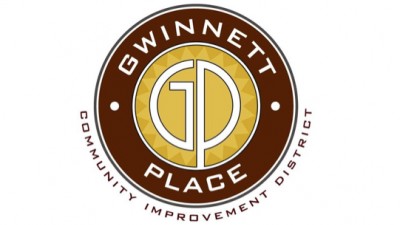With Gwinnett Place Mall In Public Hands, Locals Begin Planning For The Future

After its previous owner spent a full year searching for a buyer, the struggling shopping mall at the heart of Gwinnett Place will soon belong to Gwinnett County itself. With the $23M purchase of the Gwinnett Place Mall set to close at the end of March, officials and residents are facing a new question: What’s next?
The first step will likely be crafting a master plan for the Gwinnett Place Mall site. The road map will build upon the Gwinnett Place Community Improvement District’s vision and concept studies conducted in recent years, paring back vacant retail space and repurposing vast parking lots into housing, offices, green space and transit amenities. But exactly what will go into that master plan is still to be determined.
Going forward, it won’t just be local leaders who make these major planning decisions. One of the biggest advantages of the county’s being in charge, officials say, is how much input the community will have into what happens at the Gwinnett Place Mall site.
“The process of reimagining Gwinnett Place is going to be transparent and driven by community input,” Gwinnett Place Community Improvement District Executive Director Joe Allen said. “The CID has some ideas, and I personally have some ideas, but we want to build something that will be unique to Gwinnett County.”
Locals agree that something needs to change. At a series of Gwinnett County meetings held for the 2040 Unified Plan development, locals were asked to place dots on a map of Gwinnett County: green for areas that they would like to preserve as is, and red for areas where they would like to see change. As the dots were placed, Allen said, Gwinnett Place turned into a sea of red.

Even in its current, highly underutilized form, the Gwinnett Place area’s 2,000 acres still had a $13B economic impact for the state of Georgia in 2019, according to an exhaustive economic analysis undertaken by the CID along with KB Advisory Group. However, the same study found that if the mall had even been modestly redeveloped beginning in 2004 — similarly to nearby areas like Downtown Duluth or Suwanee Town Center — the impact could have been $87B.
Redevelopment at the current juncture is especially important, Allen said. Gwinnett is set to become the most populous county in Georgia within two decades, with an expected half a million new residents.
The Gwinnett Place Economic Development and Analysis Study laid out some of the avenues that the county and CID can take in crafting a master plan. Included in the proposals were a plan for a large public park that would serve as a gathering space and amenity for the residents and visitors of Gwinnett, as well as creating a shared stormwater management facility to reduce the burden on individual property owners looking to redevelop surrounding properties.
Also central to any master plan will likely be the creation of mixed-income housing, as well as bringing in public transit, rebuilding roads and sidewalk infrastructure to increase connectivity to the Atlanta metropolitan area.
For any of these aspirational plans to come to fruition, Allen said, the entire community of Gwinnett, from officials and public advocates to business leaders and residents, will need to band together.
“If we want to build something that will be unique to Gwinnett County that increases the density at the locations that make sense and that changes the entire trajectory of the area, we need a public-private partnership,” Allen said.
Partnerships between private developers and local officials have transformed other dead malls around the country into new hubs for living and commerce, Allen said, including Denver’s Belmar mixed-use district and CityCentre in Houston. But before they go searching for a developer to work with, the CID and Gwinnett County officials have a great deal of work to do.
Though the purchase from Moonbeam Capital Investments put Gwinnett County in control of the bulk of the Gwinnett Place Mall, the mall’s remaining anchor tenants — including Macy’s, Beauty Master and MegaMart — own their spaces and some of the surrounding parking. Those ownership complexities will have to be worked out before the county can start offering the site to developers, Allen said.

Similarly, the county and CID will have to work together to make way for new residential and commercial uses, pull together public funding to build infrastructure and launch a rebranding campaign for the area.
The good news, Allen said, is that much of the work of redeveloping Gwinnett Place won’t be done in a vacuum, but simply will expand on current trends.
“This is an opportunity to take a property that is already surrounded by strong office, hospitality and retail properties and revitalize it, make it denser and continue the growth that we already see,” Allen said. “Back in the 1980s, this area was transformed from a mobile home park into a regional supermall. Now it’s our turn to re-dream Gwinnett Place and find the next stage of life for this area.”
This article was produced in collaboration between Studio B and the Gwinnett Place Community Improvement District. Bisnow news staff was not involved in the production of this content.
Studio B is Bisnow’s in-house content and design studio. To learn more about how Studio B can help your team, reach out to studio@bisnow.com.

